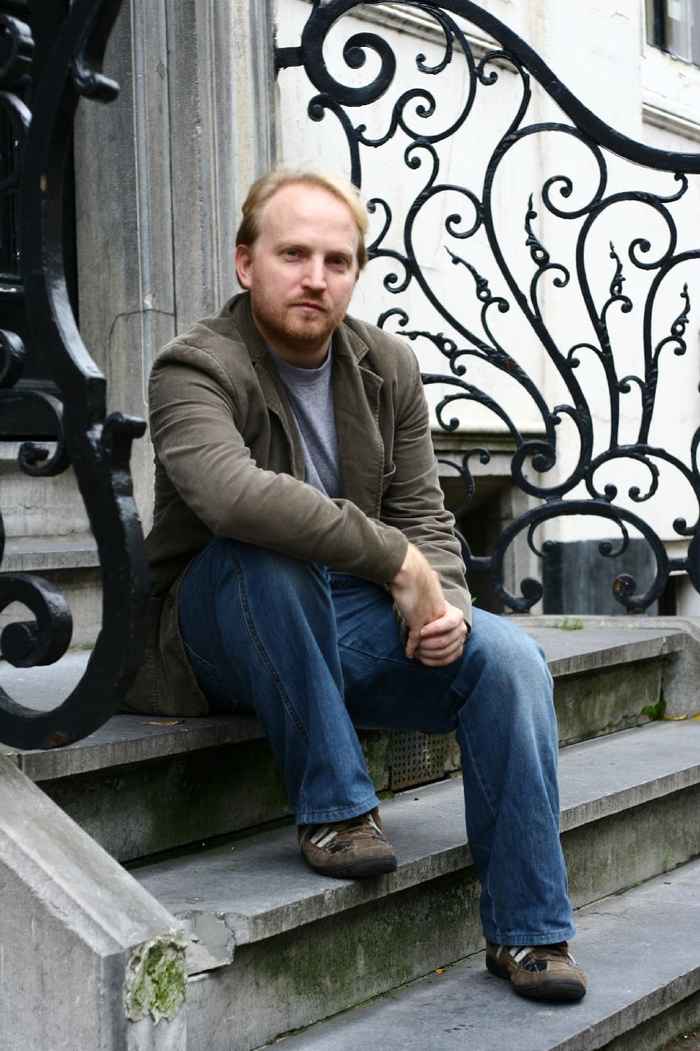Faculty
Hidden Genocides: Overshadowed by the Holocaust
Academic Director

Anthonie Holslag is an Anthropologist that graduated Cum Laude on the subject of the Armenian genocide and how this is conceptualized and experienced in present day Armenian Diaspora communities both in the Netherlands, as well as in London. His research, with the Dutch book title In het gesteente van Ararat, has been published in 2009.

Publications
Further publications include:
- Het internaliseren van een genocide (2010)
- De politiek van vergeten (2010)
- Vergeten van Armeense genocide voltooit vernietiging van een volk (2010)
- Within the Acts of Violence: an anthropological exploration on the meaning of genocide as a cultural expression (2012)
- The process of Othering: From social imaginaire to physical acts (in press: Amsterdam University Press).
Lecturers
· Prof. Alexander Hinton
Alexander Hinton is Director of the Center for the Study of Genocide and Human Rights and Professor of Anthropology and Global Affairs at Rutgers University, Newark. He is also the immediate past President of the International Association of Genocide Scholars (2011-13) and holds the UNESCO Chair in Genocide Prevention.
In 2009, Alex Hinton received the Robert B. Textor and Family Prize for Excellence in Anticipatory Anthropology "for his groundbreaking 2005 ethnography Why Did They Kill? Cambodia in the Shadow of Genocide, for path-breaking work in the anthropology of genocide, and for developing a distinctively anthropological approach to genocide." Professor Hinton was a Member (2011-12) and Visitor (2012-13) at the Institute for Advanced Study in Princeton. He has lectured about genocide, violence, justice, and the aftermaths of genocide throughout the globe.
· Dr. Devon Hinton
Dr. Devon Hinton is a board-certified psychiatrist and an Associate Professor of Psychiatry at Harvard Medical School. After receiving his M.D., Dr. Hinton completed his medical internship and his residency in psychiatry at Harvard Medical School (Longwood program). He also has a Ph.D. in Medical Anthropology from Harvard University. Dr. Hinton’s major clinical and research interests include the culturally sensitive assessment and treatment of PTSD and panic disorder in traumatized refugee and ethnic minority populations.
· Prof. Mirjam de Bruin (Tentative and schedule permitting)
Mirjam de Bruijn is an anthropologist whose work has a clearly interdisciplinary character. She has done fieldwork in Cameroon, Chad and Mali and an important theme throughout is how people manage risk (drought, war, etc.) in both rural and urban areas. She focuses on the interrelationship between agency, marginality, mobility and communication. Her specific fields of interest are: nomadism, youth and children, social (in)security, poverty, marginality/social and economic exclusion, violence, slavery, and human rights, Information and Communication Technologies (ICTs)
· Prof. dr. J.T.V.M. (Joop) de Jong. (Tentative and schedule permitting)
Joop de Jong, MD, PhD, is Professor of Cultural and International Psychiatry at the VU University Medical Center in Amsterdam and the Amsterdam Institute of Social Science Research of the University of Amsterdam. He is adjunct Professor of Psychiatry at Boston University School of Medicine and Visiting Professor of Psychology at Rhodes University, South Africa.
Joop de Jong is expert in public mental health and cultural and international psychiatry. He has worked and conducted research in post-conflict, disaster, and in multicultural settings, and has (co)authored over 240 chapters and articles in peer-reviewed journals. He has published on cultural and international psychiatry and psychotherapy, public mental health, epidemiology, medical anthropology and on the mental health of populations torn by violence and disaster. He is advisor to WHO and other UN agencies, member of several board of trustees and member of various professional organizations.
· Dr Kjell Anderson, (Tentative and schedule permitting).
Dr. Kjell Anderson is a jurist and social scientist specialising in the legal and social aspects of mass violence, holds a doctorate in international human rights law from the National University of Ireland. He also holds master’s degrees in international human rights law and international conflict resolution. His doctoral research focussed on the criminology of genocide, particularly the relationship between state structures and the motivations of individual perpetrators. He has undertaken human rights work in Rwanda, Burundi, Uganda, Democratic Republic of Congo, Bosnia, Cambodia, Fiji, New Caledonia, Ireland, the Netherlands, Canada, and the United States.